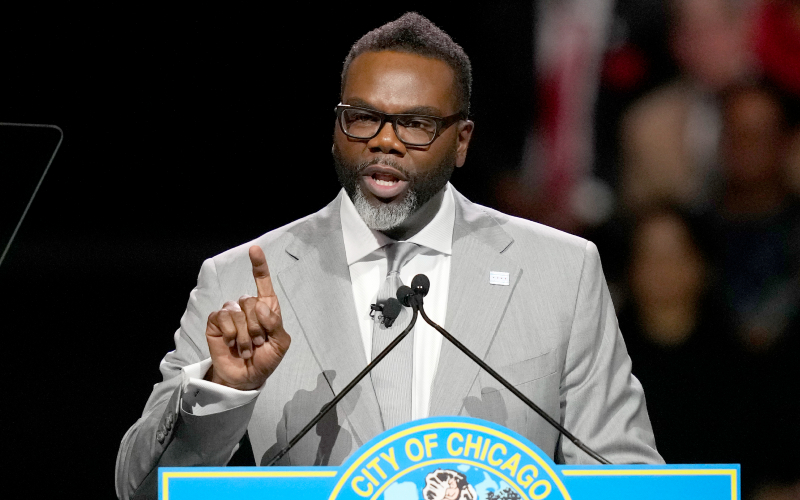More than 200 sex-trafficking victims were rescued during a nationwide enforcement campaign known as Operation Cross Country. It's a two-week coordination, the 13th annual, involving almost every FBI field office and their respective state and local partners. The raids helped locate 59 minors who have been victims of trafficking and sexual exploitation, and another 59 who had been reported missing.
While a longtime anti-trafficking activist says the numbers are amazing, he also argues they're not enough.
 "Annually the FBI does these raids, and there's a lot of preparation that goes into it. It's a very good thing – but I have a couple of concerns about it. Not to take anything away from those involved in rescuing the victims, but I don't see us making any progress," National Center on Sexual Exploitation president Patrick Trueman said on Washington Watch Friday.
"Annually the FBI does these raids, and there's a lot of preparation that goes into it. It's a very good thing – but I have a couple of concerns about it. Not to take anything away from those involved in rescuing the victims, but I don't see us making any progress," National Center on Sexual Exploitation president Patrick Trueman said on Washington Watch Friday.
Trueman is a former chief of the Child Exploitation and Obscenity Section, Criminal Division at the U.S. Department of Justice; and has traveled the world speaking about human trafficking and the harms of sexual exploitation. He acknowledges every child saved is cause for celebration – but he also realizes that until the root of the problem is addressed, every child will be replaced with another.
"Congress passed the first anti-trafficking bill in 2001, and you can hardly argue that things have gotten better since then despite the work of the FBI and others. That's because for the most part we don't address the root causes: the demand for trafficking victims, [and] why is there a demand?" Trueman explained to show host Jody Hice.
A perverse market demand

The answer is a problem of the human heart, said the NCOSE spokesman.
"That demand is created by a couple of factors … one, pornography. Children today are raised on pornography; and as [boys] get to be young men, after they see the pornography, they're going out and visiting prostituted women, most of whom are trafficked women. They're watching all manner of pornography," Trueman said.
All manner includes child pornography with minors taken from families and forced into sexual exploitation.
"They may not start with child pornography, but many of them land on that. They get attracted to it, and they want child victims, and child victims are very available on these social platforms," Trueman explained.
He continued, pointing to social media as the second factor and explaining it fuels the first with a steady stream of availability.
"Instagram, Twitter, Facebook, you can find children there to groom and have sex with. Then, what happens to those children is they are traded off to others, trafficked, maybe taken away from their parents. Some of those children are still living at home, maybe going to school – but in their off time, they're being trafficked," Trueman said.
In 1997 the Supreme Court – in Reno v. American Civil Liberties Union – upheld a lower court ruling out of Philadelphia that said the Communications Decency Act (CDA), signed by President Bill Clinton in 1996, was an unnecessary infringement on the free-speech rights of adults. Until that ruling, the CDA forbade the targeting of minors with sexually explicit material. Afterwards, the ruling strengthened those who engage in such material.
Congress, however, left untouched Section 230 of the CDA, a move added to the original bill which was put in place to encourage internet service providers to voluntarily remove harmful content. In doing so, Section 230 provided immunity to those who removed the offensive or indecent posts of third parties.
Section 230 under the microscope
There have been multiple failed attempts to repeal or rewrite Section 230.
"Congress, years ago, passed the Communications Decency Act and gave immunity to all these platforms for material that [others] put on their platforms," Trueman said. "So, if someone is trafficking on their site, like Twitter said in a lawsuit, 'We're not responsible even though we know it goes on.'
 "Well, they could just turn that off or kick those people off who are trafficking," he stated. "This immunity has to be challenged. Congress will do nothing about it, but we have to get the courts to do something about it," Trueman said.
"Well, they could just turn that off or kick those people off who are trafficking," he stated. "This immunity has to be challenged. Congress will do nothing about it, but we have to get the courts to do something about it," Trueman said.
The National Center on Sexual Exploitation, he added, has a "mass scale" prevention program underway.
"Essentially what we are doing is killing demand for trafficking by killing the factors that cause demand," Trueman said. "When you know there's a trafficked child, you have to do all you can do to make sure it doesn't happen to another child, not just rescue that one child and rest on your laurels."
This summer, the box office success of the movie "Sound of Freedom" has exposed to the American public the reality and tragedy of human trafficking, particularly that involving children. Author and SeedTime founder Bob Lotich says "knowing" of something should give way to "doing" something about it. In a recent video, Lotich discusses how he and his wife were impacted by the film and left the movie feeling motivated to do as much as they can to help fight human trafficking.







